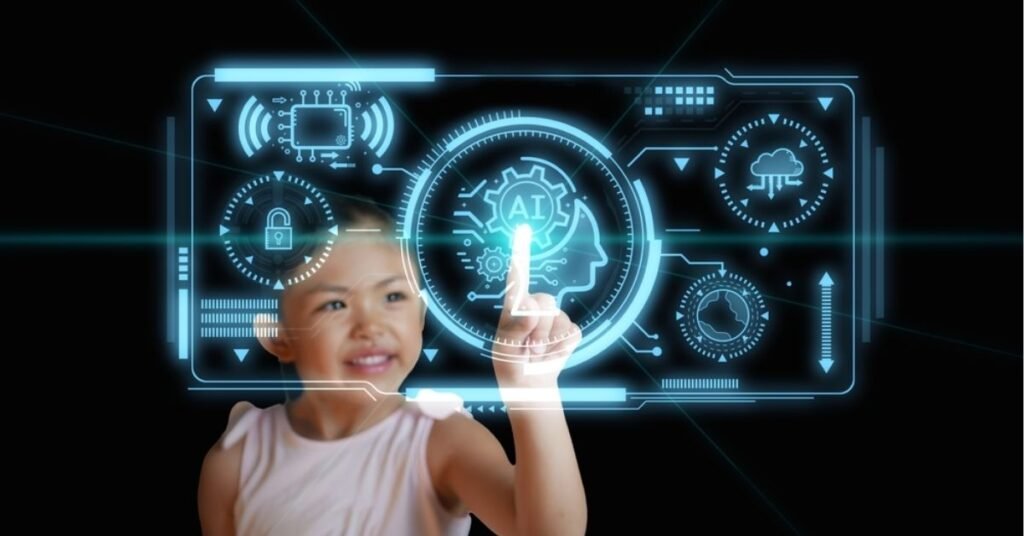In 2025, AI Education Learning Personalization is revolutionizing U.S. classrooms, turning one-size-fits-all education into a tailored experience that empowers every student.
From adaptive learning platforms to smart tutoring systems, artificial intelligence is reshaping how students learn, how teachers teach, and how schools operate.
With the education sector embracing these advancements, AI Education Learning Personalization is no longer a futuristic dream but a reality transforming K-12 schools, universities, and online learning platforms across the nation. As technology drives unprecedented customization, students are thriving like never before.
Innovations Powering Personalized Learning
At the heart of AI Education Learning Personalization are cutting-edge technologies designed to meet individual student needs.
Adaptive learning platforms, like those from Khan Academy, analyze student performance in real-time, adjusting lesson difficulty and pacing to match their strengths and weaknesses.
Smart tutoring systems, powered by natural language processing, provide instant feedback and guide students through complex concepts, acting like a personal tutor available 24/7.

Real-time performance tracking tools use data analytics to identify learning gaps, enabling educators to intervene before students fall behind.
These innovations create dynamic, student-centered environments that prioritize engagement and mastery over rote memorization.
Real-World Adoption in U.S. Education
AI Education Learning Personalization is gaining traction across the U.S. In California’s Los Angeles Unified School District, AI platforms like Edgenuity personalize math and reading curricula for over 600,000 students, boosting engagement by 30%.
Universities like Arizona State use AI-driven tools from Coursera to tailor online courses, helping 60% of students improve their grades through customized study plans.
Edtech startups like DreamBox Learning are partnering with rural schools in Texas to deliver adaptive math programs, narrowing achievement gaps for underserved communities.
Khan Academy’s AI-enhanced courses, used by millions, offer personalized practice problems that adapt to each learner’s progress. These examples highlight how AI Education Learning Personalization is scaling from coast to coast.
Benefits for Students
For students, AI Education Learning Personalization is a game-changer. Tailored learning paths ensure that advanced students are challenged while struggling learners receive extra support, fostering confidence and reducing frustration. Engagement soars as interactive AI tools, like gamified quizzes, make learning fun.
Studies show a 25% increase in student participation with AI platforms. Diverse learning needs, including those of students with disabilities or English language learners, are better addressed through customized content and pacing.
For example, AI tools can provide real-time translations or auditory support, making education more inclusive and equitable for all.
Empowering Teachers with AI Tools
Teachers are also reaping the rewards of AI Education Learning Personalization. AI-driven dashboards, like those from Google Classroom’s AI integrations, allow educators to monitor student progress instantly, identifying who needs help without sifting through piles of data.
Administrative tasks, such as grading and lesson planning, are streamlined. AI tools can cut grading time by up to 50%, according to a 2025 EdTech Magazine report.
This frees teachers to focus on creative instruction and one-on-one mentoring. By automating routine tasks, AI empowers educators to personalize lessons at scale, enhancing classroom outcomes without burnout.
Challenges and Ethical Concerns
Despite its promise, AI Education Learning Personalization faces significant challenges. Data privacy is a top concern, as AI systems collect sensitive student information, raising fears of breaches or misuse.
The Department of Education reported 1,300 school data breaches since 2020, underscoring the need for robust cybersecurity.
Over-reliance on AI risks diminishing the human element of teaching, with 40% of educators worried about reduced student-teacher interaction, per a 2025 survey.
Access disparities also loom large; rural and low-income schools often lack the infrastructure to implement AI tools, potentially widening educational inequities. Addressing these issues is critical to ensuring responsible adoption.

Expert Insights: The Future of Learning?
Experts are optimistic yet cautious about AI Education Learning Personalization. “AI has the potential to make personalized learning the standard by 2035,” says Dr. Linda Darling-Hammond, president of the Learning Policy Institute.
“But we must prioritize equity and ethics to avoid leaving vulnerable students behind.” Analysts predict that 80% of U.S. schools will integrate AI tools by 2030, driven by declining costs and improved technology.
However, concerns about “algorithmic bias” in AI systems where biased data could disadvantage certain groups prompt calls for transparent design and oversight. If implemented thoughtfully, AI could redefine education as a deeply individualized experience.
A New Era for U.S. Education
The rise of AI Education Learning Personalization signals a transformative era for U.S. education. By tailoring learning to each student’s needs, AI is boosting engagement, closing gaps, and empowering teachers to focus on what matters most.
Yet, the path forward requires balancing innovation with responsibility, safeguarding data, ensuring equitable access, and preserving the human connection in education.
As schools and edtech companies continue to innovate, AI Education Learning Personalization could reshape classrooms for decades to come, creating a future where every student has the tools to succeed.
With careful stewardship, this technology promises to make education not just smarter, but fairer and more inspiring for all.
AI is changing education! Personalized learning & inclusive environments are on the rise. See how AI tools are helping teachers & students: https://t.co/jHaRsauuwj #AI #Education #EdTech #Innovation
— newerest.space (@NewerestSpace) August 27, 2025
Also Read: Breakthrough AI Drone Delivery Systems Soar High

Abdul Basit is a US-based tech writer who covers Apple innovations, Tesla’s EV growth, AI breakthroughs, smartphone trends, and app reviews for global readers.
